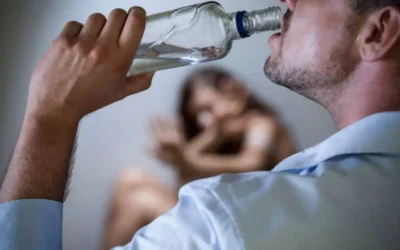Content
No matter how much alcohol you drink, you may experience night sweats when you go to sleep. Typically, the more someone drinks, the worse their excessive sweating will be. Some people suffer from a condition called alcohol intolerance which causes them to have a negative reaction to consuming alcohol.
Is it good to sweat after drinking alcohol?
Does sweating help get alcohol out of your system? No. Sweating does not get rid of alcohol from your body any quicker than normal. Alcohol is broken down by your liver into smaller byproducts, which are then expelled from your kidneys into your urine.
They are caused by the alcohol affecting your nervous system after it's broken down by enzymes in your liver. Alcohol initially opens your blood vessels wider than normal (vasodilation). Delirium tremens (DT) is the most severe form of alcohol withdrawal. It can cause severe sweating, fever, hallucinations, and seizures. This is a life threatening event requiring immediate medical care.
Alcohol Withdrawal and Hot Flashes
Heavy drinking results in severe intoxication, which may cause vomiting, upset stomach, slurred speech, coordination problems, and severe sweating. Football season is finally rolling around as the weather cools off, but some players struggle with sweat problems as the season heats up. Athletes are known to sweat copiously when they are performing – it is a sign of health as it is the body’s only physiological adaptation to keep itself cool. In fact, those who are more fit tend to sweat more than those who are not because they can workout at a greater workload which generates more heat.
- According to the National Institutes of Health (NIH), a 2019 survey suggested that 14.5 million people aged 12 years and older in the United States had AUD.
- These include procedures like iontophoresis, botox injections, oral medications, and even surgery.
- Besides being linked to alcohol use, hot flashes and sweating are common symptoms in women who are experiencing menopause.
- Everybody reacts differently to withdrawal, so it is important to seek medical help as soon as you notice these symptoms.
- When the vessels expand, you might feel even warmer because of the increased blood flow inside the blood vessels beneath your skin.
Seek the advice of a doctor with any questions you may have regarding a medical condition. Never delay seeking or disregard professional medical advice because of something you have read here. You don't necessarily need to go to your doctor for a diagnosis for night sweats. Alcohol-related liver disease also does not usually cause symptoms until the liver is severely damaged.
Why Do I Sweat When Hungover?
Sure, "sweat it out" is a cutesy mantra, but it's become the new hangover cure for do-it-all-millennials. While life should certainly be about #balance, experts say the "sweat it out mentality" is actually dangerous. Everyone sweats, but if you sweat even when you don’t need to cool down, you might have hyperhidrosis. If you want to say sayonara to sweating, you’ll have to ditch the soda too. Coffee is the most popular caffeine source worldwide, and if you drink enough of it, it can make you sweat. Caffeine also impacts the cardiovascular and endocrine systems by elevating heart rate and boosting stress hormone production.

Night sweats in older people can also be related to obstructive sleep apnea. The risk of developing sleep apnea increases during menopause because of the loss of the hormones estrogen and progesterone. One of the most common causes of night sweats is sleeping in a warm or hot environment. It's normal to sweat in your sleep if your bedroom is warm, you wear heavy pajamas, or you sleep under lots of blankets. This article will go over some of the possible reasons why you're sweating in your sleep.
Are night sweats a sign of alcohol withdrawal?
For most people, night sweats due to alcohol consumption subside after a few hours and don’t have a lasting impact. If alcohol is the cause of your night sweats, the best treatment is to drink less. One study of alcohol’s effects on body temperature showed that sweating and the sensation of heat increased significantly 10 minutes after consuming alcohol. Body temperature, however, dropped 20 minutes after the sweating began. This could be a serious condition so it’s recommended you see your doctor if you experience frequent night sweats.
It’s also a good idea to have to prepare nutritious food, such as soup or noodles before the withdrawal. Having a trusted person to stay with you during your detox can help you get https://ecosoberhouse.com/article/the-connection-between-alcoholism-and-anger/ through the process safely and quickly especially for alcoholics. Night sweats are in most cases temporary, but they may continue for up to 24 hours after you had your last drink.
You need to let your body rid itself of the alcohol and heal. If excessive drinking and hangover symptoms are interfering with your life, talk to your healthcare provider. When these toxic byproducts remain in the body, side effects like flushed skin, nausea, vomiting, rapid heart rate, headache, and more can occur. Women going through menopause also experience hot flashes naturally and drinking alcohol can worsen these symptoms. Hangover symptoms like excessive sweating, dehydration, and hot flashes can last up to 24 hours after your last drink.
The risk of getting sleep apnea increases during menopause because of the loss of the hormones estrogen and progesterone. Your body goes through normal temperature changes while you sleep. Most people have a dip in their core body temperature around 4 a.m.
Menopause
Alcohol changes the way the brain works by disrupting neurotransmitters and their functions. These disruptions can intensify existing symptoms of certain mental health conditions, including anxiety disorders. Alcohol withdrawal symptoms may begin within 6 hours of the last alcoholic drink but usually begin within hours of drinking alcohol. Understanding does alcohol make you sweat why avoiding alcohol before bed is so important can help you make the decision to do so more easily. Alcohol prevents deep sleep and REM sleep, which are required for your body to heal and recover, especially if you have been injured or sick. Your body also needs these phases of sleep in order to burn fat, repair brain cells, and grow new muscle tissue.
A few other symptoms of alcohol withdrawal include trembling, nausea, and sweating. If you experience frequent night sweats, you should see a doctor. If you’ve been drinking alcohol heavily, you should consider seeking treatment immediately.

